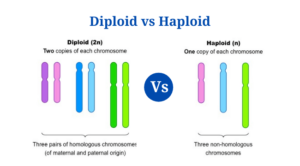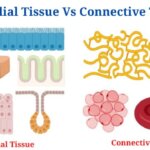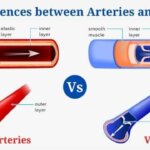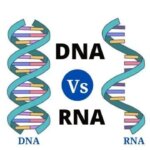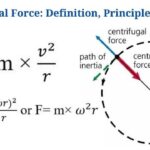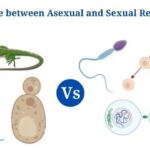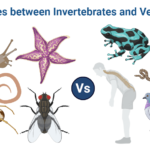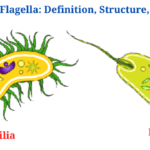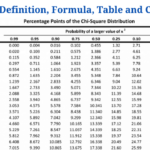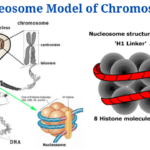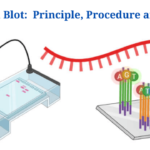What is Diploid?
A cell or creature that is diploid has two sets of chromosomes, one from each parent.
- Somatic cells are diploid in most organisms, whereas sex cells are usually haploid.
- The two chromosomes obtained from two parents are duplicated twice in diploid cells.
- Except for a few rats, almost all mammals are considered diploid creatures. However, there have been studies that have refuted the existence of polyploidy in mammals.
- Polyploidy is a state in which a cell’s chromosome number exceeds that of a diploid cell. Most organisms that reproduce through mitosis have 2n chromosomes, resulting in diploid cells.
- A cell with 2n chromosomes multiplies the chromosomes during mitosis to increase the number to 4n.
- The cell subsequently divides into two daughter cells, each with two chromosomes, resulting in diploid daughter cells.
- As a result, mitosis affects the amount of chromosomes in all cells. In all somatic cells, mitosis division is the primary mode of growth.
- After mitosis, the diploid daughter cells carry the same genetic information as the parents.
- Diploid cells are also created when two haploid cells are fertilised, resulting from fertilised eggs.
- The number of chromosomes varies amongst organisms, and the number does not imply the organism’s complexity.
- Humans have 46 diploid chromosomes, whereas dogs have 72 diploid chromosomes.
- Some viruses carry two copies of their RNA genome in each viral particle, causing them to be diploid.
- T-lymphocytic virus, Retroviruses, and HIV are all viruses having a diploid genome.
- Some plants in the plant kingdom have two stages in their lifetime, resulting in generational alternation.
- The sporophytic stage of the lifecycle is the diploid stage. The sporophytic stage is the most common in plants belonging to the Pteridophyta family, which includes ferns.
PhD in Psychology : Career, Admission Process, Benefits, Opportunities.
What is Haploid?
A cell or organism that contains only one copy of each chromosome is called haploid or monoploid.
- The number of chromosomes in haploid cells is half that of diploid or somatic cells.
- However, the term haploid is sometimes used to refer to the number of chromosomes found in gametes.
- If the somatic cells are tetraploid, the gametes will have two sets of chromosomes and will still be referred to as haploid.
- When a diploid eukaryote’s nucleus contains only one set of chromosomes, it is called haploid. Haploid creatures are organisms that have haploid chromosomes.
- The sex cells or gametes of most eukaryotic species are haploid. This comprises sperm, a male sex cell, and ovum, a female sex cell.
- During sexual reproduction, haploid cells are generated during meiosis division. A diploid cell copies its chromosomes to generate four sets of chromosomes during meiosis division. After that, the cell divides into four cells, each with a single pair of chromosomes.
- In male wasps, bees, and ants, haploid eggs can develop into an organism without being fertilised. As a result, these organisms develop from unfertilized eggs.
- In diploid organisms, the haploid stage is required to maintain a constant number of chromosomes. After that, the haploid cells combine to form diploid cells with two sets of chromosomes.
- The haploid and diploid stages occur one after the other in plants, algae, and fungi, resulting in generational alternation. The gametophytic stage is the haploid stage.
- However, unlike mosses, the gametophytic stage predominates in most Bryophyta. In some species, the haploid stage lasts for a longer time.
Difference Between Diploid and Haploid (Diploid vs Haploid)
[ninja_tables id=”3852″]Click Here for Complete Biology Notes
Diploid Cells Examples
Somatic cells
- Somatic cells are cells that are found in the human body.
- Except for sex cells and gametes, all cells in an organism’s body are somatic cells.
- Except for the proliferating cells of the reproductive system, all cells in the body are somatic cells. Somatic cells have two sets of chromosomes and are diploid.
- Mitosis is a cell division process that produces new cells with identical chromosomes.
- One pair of chromosomes is passed down from the father, while the other is inherited from the mother.
- However, certain species may have tetraploid (four sets of chromosomes) or hexaploid somatic cells (six sets of chromosomes).
- Somatic cells are more likely than haploid cells to undergo spontaneous mutations.
- Because there are around 220 types of somatic cells in people, the nature and content of the cells in humans are determined by the type of somatic cell. The number of chromosomes in human somatic cells is 46.
- Haploid cells are a type of cell that has two chromosomes.
Haploid Cells Examples
Gametes/Sex cells
- Gametes, often known as sex cells, are reproductive cells found in many creatures that reproduce sexually.
- Haploid cells have half the amount of chromosomes as somatic cells and are hence referred to be such.
- Sex cells are created when proliferating cells in the reproductive organs, such as the testes and ovaries, undergo meiosis division.
- Male gametes and female gametes are the two types of gametes, with the male gamete carrying the paternal set of chromosomes and the female gamete carrying the maternal set.
- These cells are crucial because they enable sexually reproducing organisms maintain a steady number of chromosomes.
- The number of chromosomes in human sex cells is 23.
Diploid vs Haploid Citations
- https://www.answers.com/Q/How_does_meiosis_maintain_a_constant_number_of_chromosomes_in_the_body_cells_of_organisms_that_reproduce_sexually
- https://sciencing.com/haploid-vs-diploid-what-are-the-similarities-differences-13718415.html
- https://quizlet.com/subject/diploid/
- https://quizlet.com/108280510/diploid-flash-cards/
- https://en.wikipedia.org/wiki/Haplodiploid_sex-determination_system
- https://brainly.in/question/123109
- https://brainly.com/question/484458
- https://biologywise.com/diploid-haploid
- https://answersdrive.com/what-is-the-diploid-chromosome-number-for-a-normal-karyotype-7156586
- https://www.verywellhealth.com/what-are-cancer-cells-2248795
- https://www.answers.com/Q/How_does_fertilization_relate_to_diploid_cells
Related Posts
- Phylum Porifera: Classification, Characteristics, Examples
- Dissecting Microscope (Stereo Microscope) Definition, Principle, Uses, Parts
- Epithelial Tissue Vs Connective Tissue: Definition, 16+ Differences, Examples
- 29+ Differences Between Arteries and Veins
- 31+ Differences Between DNA and RNA (DNA vs RNA)
- Eukaryotic Cells: Definition, Parts, Structure, Examples
- Centrifugal Force: Definition, Principle, Formula, Examples
- Asexual Vs Sexual Reproduction: Overview, 18+ Differences, Examples
- Glandular Epithelium: Location, Structure, Functions, Examples
- 25+ Differences between Invertebrates and Vertebrates
- Lineweaver–Burk Plot
- Cilia and Flagella: Definition, Structure, Functions and Diagram
- P-value: Definition, Formula, Table and Calculation
- Nucleosome Model of Chromosome
- Northern Blot: Overview, Principle, Procedure and Results

